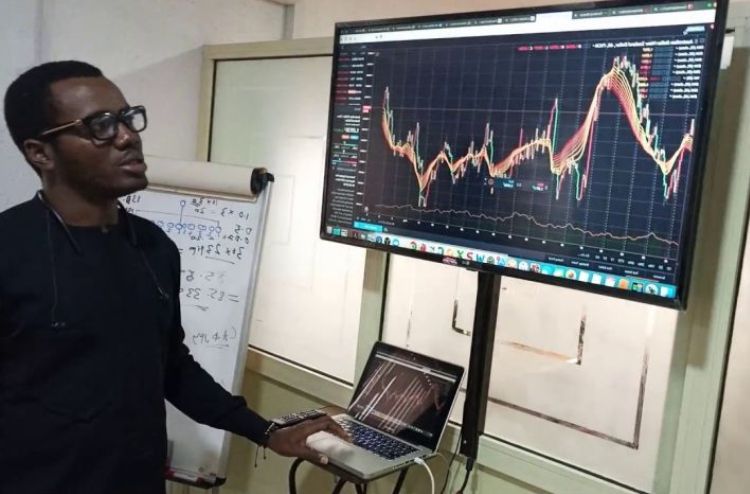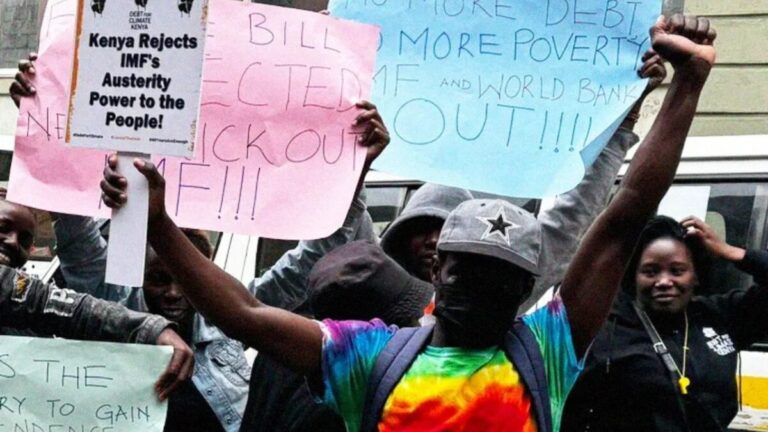
Image of a diverse group of young Kenyans collaborating. Photo/Courtesy
By Daisy Okiring
NAIROBI, Kenya– If you want to understand the modern Kenyan economy, look beyond the traditional indicators. Look at a University of Nairobi student who spends her evenings training artificial intelligence models for a Silicon Valley startup, earning in dollars through a platform like Remotasks.
Look at the 19-year-old from Kinoo who turned TikTok creativity into a national brand, landing endorsements and media deals that dwarf a typical graduate’s salary. Look at the young man in Umoja trading cryptocurrency and NFTs, navigating global digital markets from his smartphone.
This is not a fringe phenomenon; it is the new mainstream. A stark generational divide is reshaping the Kenyan workforce, and it’s a story of two different responses to one persistent problem: a lack of formal employment. The common narrative pits the disillusioned Millennial against the agile, entrepreneurial Gen Z.
While this is an oversimplification, it contains a powerful truth rooted in a critical shift in mindset. One generation was scarred by broken promises; the next was conditioned by the reality.
What Happened to the Millennials: The Big Letdown
Kenyan Millennials, born roughly between the mid-1980s and mid-1990s, grew up with a specific, linear blueprint for success. The mantra was simple and repeated everywhere—from parents to teachers: “Work hard in school, get good grades, go to university, and get a good job.” The promise of a corner office, a company car, and a steady paycheck was the shining city on the hill.
They entered the job market in the 2000s and 2010s, degrees in hand, only to slam into a wall. According to the Kenya National Bureau of Statistics (KNBS), youth unemployment has consistently remained over 20%, with graduates making up a significant portion. This was not just a statistic; it was a personal and collective trauma. They had done everything “right,” but the system had not held up its end of the bargain.
Read More: Forex or fraud? The flashy Gen Z lifestyle masking Kenya’s dark world of carding
This created what economists call a “scarring effect.” The psychological impact was profound. For many, the initial motivation of job hunting—sending out hundreds of applications, attending countless interviews—gave way to a crushing sense of hopelessness. The promise had been a mirage.
This reality manifested in what some have misinterpreted as laziness, but was often linked to depression and loss of direction. Some retreated, drowning their frustrations in alcohol or disengaging completely from a race they felt was rigged from the start. They were the first generation to be told they needed to “hustle,” but the path was uncharted, lonely, and full of uncertainty.
As Strive Masiyiwa, founder of Econet Global, once observed, “In our generation, we looked for jobs. Today, young people must create jobs.” For Kenyan Millennials, this was a painful directive they were forced to follow, often without a map.

Gen Z: Born into the Hustle
Generation Z, born from the late 1990s onwards, entered a different Kenya. They never knew a time when formal employment was a reliable or guaranteed path. They observed their older Millennial siblings and cousins—the nation’s first degree-holding boda boda riders and Uber drivers—and learned a crucial lesson early on: the traditional employment sector has no future for you.
Unlike the Millennials, who had to unlearn a dream, Gen Z never had that dream to begin with. They were conditioned by the reality of a struggling economy from day one. This has made them pragmatists, not idealists. Their core question was never “How do I get a job?” but “How do I make money?”
Read More: Kenya trapped in debt cycle as Ksh7 of every Ksh10 goes to repayment
This fundamental shift is what makes them appear, and often be, more relentlessly hardworking and resourceful than their predecessors. Their ethos is captured by Ibukun Awosika, former Chairman of First Bank of Nigeria, who stated, “The world is changing. You can’t sit down and expect that the same opportunities that were there for your father will be there for you. You have to create your own opportunities.” Gen Z heard this message from birth.

The Great Enabler: The Digital Playground
This divergence in mindset was supercharged by technology. Millennials were witnesses to the digital revolution; Gen Z are natives in its kingdom.
For Millennials, the internet arrived. Platforms like Facebook were for socializing; the idea of building a career on them was nascent and strange. The “gig economy” was a foreign concept. Their hustle was often physical—a small mitumba business, a car wash, a part-time sales job.
Gen Z, however, has had a smartphone as an extension of their hand their entire lives. A 2023 report by the Communications Authority of Kenya showed there are over 66 million mobile subscriptions in a country of 55 million people, with data usage skyrocketing. They don’t remember a world without 4G, YouTube tutorials, or M-Pesa.
They see a friend making money from TikTok games, another running a lucrative online thrift store, and a third doing freelance graphic design for clients abroad. For them, these are not side hustles; they are legitimate, primary career paths.
Their “hard work” is not about tirelessly applying for jobs that don’t exist. It’s about spending hours learning video editing on YouTube, building a personal brand on X (Twitter), coding a simple app, or mastering digital marketing to sell their products. Their hustle is global, digital, and operates 24/7.

Redefining Work and Relevance
This has led to a dramatic redefinition of what it means to “work” and be “relevant” in Kenyan society.
- For Millennials, relevance was often tied to a job title at a recognized company. Losing that meant a loss of identity.
- For Gen Z, relevance is measured by online influence, financial independence, and entrepreneurial grit. Their identity is built on their hustle, not their employer.
This is why a Gen Z youth will proudly declare themselves a “content creator” or “digital entrepreneur,” while a Millennial in a similar situation might have felt shame for not being a “manager” or “officer” at a blue-chip company. Gen Z has decoupled self-worth from the formal employment structure, giving them a psychological freedom that many Millennials had to fight hard to achieve. This aligns with a global shift noted by thought leaders like Simon Sinek: “Millennials were raised in a world of instant gratification. Gen Z is being raised in a world of instant creation.”
X says: “Stop applying for jobs and start creating them. The system isn’t broken; it was just never built for us.” #GenZHustle
A Fair Comparison? The Pioneers Versus The Scalers
It is crucial, however, to avoid writing off the Millennial generation entirely. To call them “lazy” is to ignore their foundational struggle. Many Kenyan Millennials were the pioneers of the hustle culture. They were the first to try their hand at blogging, to attempt e-commerce when logistics were a nightmare, and to venture into digital freelancing without a support system. They were breaking the ground that Gen Z now so confidently walks on.
Their battle was often invisible and far more lonely. They faced societal pressure and the constant question, “When will you get a real job?” They fought this battle with less sophisticated tools and a less mature digital ecosystem. The Millennials who persevered are now the managers, tech leaders, and successful entrepreneurs creating the structures that Gen Z is leveraging. The World Bank estimates that MSMEs, largely driven by these generations, create 80% of the employment in Kenya.

A Lesson in Adaptive Resilience
The narrative is not that one generation is inherently superior to the other. Rather, it is a powerful lesson in human adaptation. The Kenyan spirit has not been broken by economic hardship; it has evolved.
The Millennial experience was a painful, necessary correction to a national myth. They absorbed the shock of a system’s failure. Gen Z, learning from that trauma, skipped the grieving process and moved straight to solution-mode. They are not harder workers; they are more agile adapters.
The future of Kenya’s economy will not be written solely in corporate boardrooms but in the vibrant, chaotic, and innovative spaces where Gen Z is building their own tables, having seen the futility of waiting for a seat at one that was never set for them.
As the late Nobel Laureate Wangari Maathai wisely said, “You cannot protect the future without caring for the present.” Gen Z, by taking control of their present through relentless hustle, is actively and audaciously protecting their future. And for that, they deserve not just our observation, but our admiration and support.




